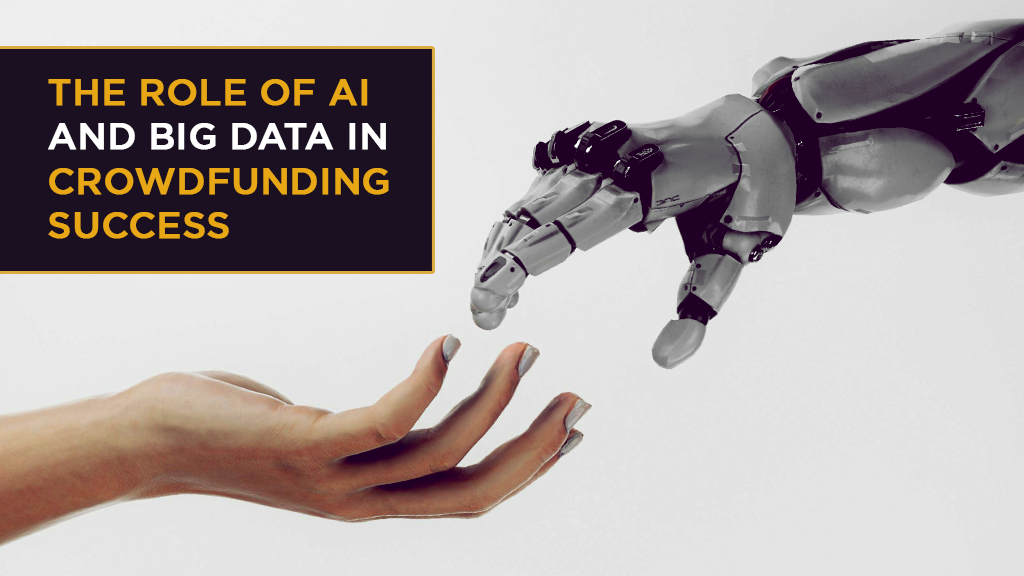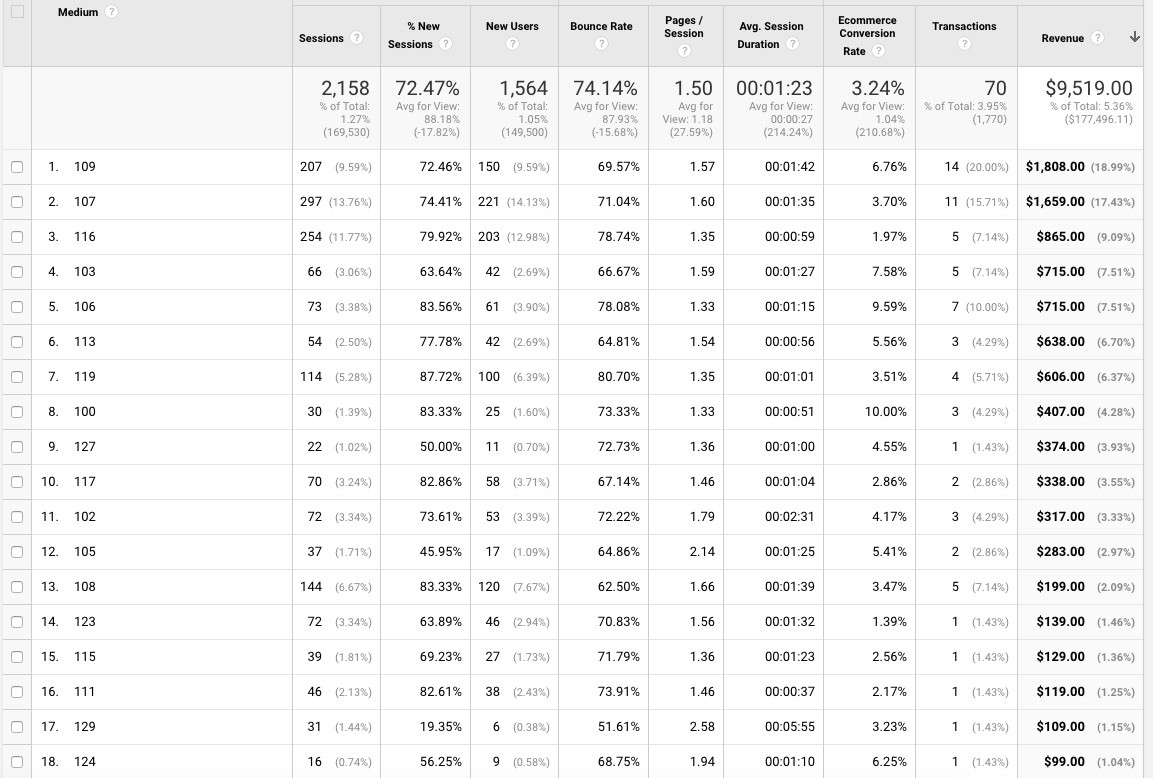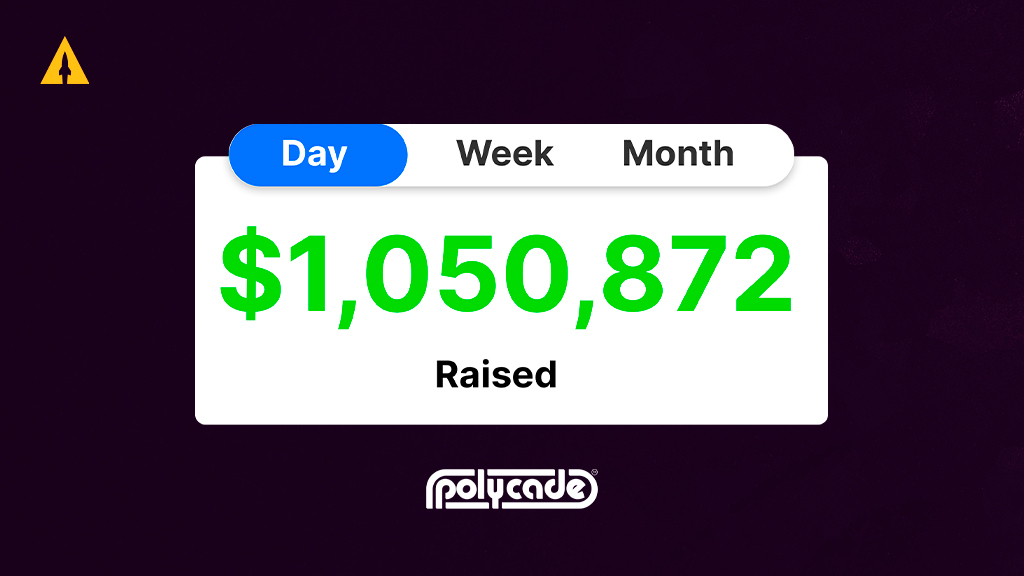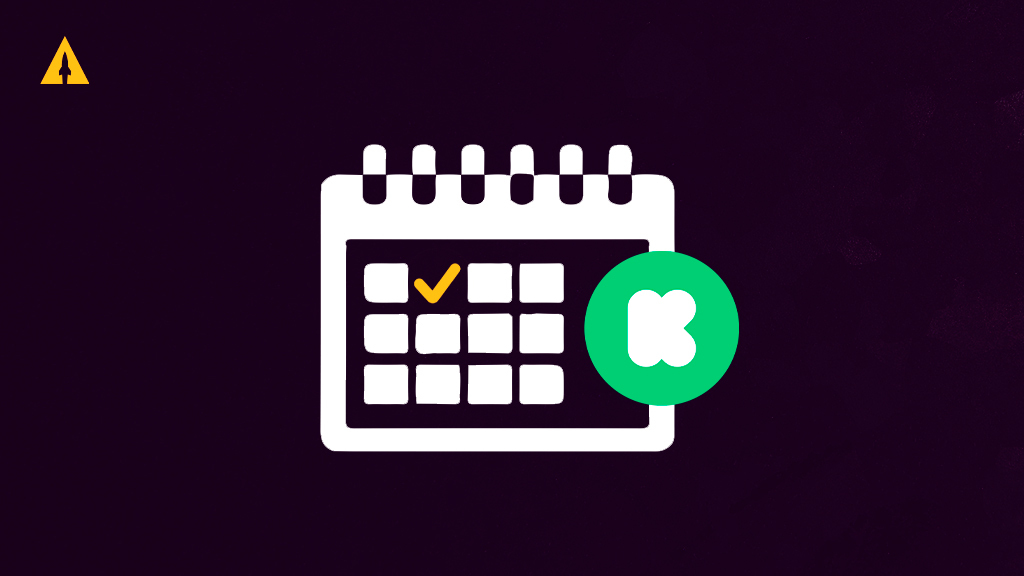
Crowdfunding and Artificial Intelligence (AI) aren’t two terms you might typically see used together, but that could be changing.
As big data and AI become more integrated with our digital lives, it’s inevitable that they will come to play bigger roles in traditional crowdfunding campaigns. With things like market research, email marketing, and the gamut of analytics that go into trying to produce successful outcomes, it’s reasonable to expect that big data and AI can be adapted to help streamline the crowdfunding process and minimize mistakes creators might otherwise make.
We’re also seeing how AI is becoming so sophisticated that it can produce good creative assets like art and copy, which may play a key role in bringing down even more barriers that might be keeping some creators out of trying crowdfunding at all. Increased predictability in crowdfunding can go a long way in making sure creators continue to use this product-launching strategy going forward.
And while there may never be a way to produce 100% success rates, it helps to know what the benchmark is for success. Knowing how to measure a successful crowdfunding campaign first can help you envision the goalposts to aim for before putting big data and AI to work for you.
Contents
- What is a successful crowdfunding campaign?
- How big data can help your crowdfunding campaign
- How AI can help your crowdfunding campaign?
- Big data tools to use in your crowdfunding campaign
- AI tools to use in your crowdfunding campaign
- The crowdfunding future is data-driven
- Final thoughts on the role of big data and AI in crowdfunding
What is a successful crowdfunding campaign?
In speaking with clients over the years, we’ve often heard things like “six-figure raise” and “multi-million dollar business” as definitions for success in crowdfunding.
However, one of the best definitions for success we’ve ever heard from a client was this: “If I’m able to continue to e-commerce and scale my business, my crowdfunding campaign was a success.” While not entirely on the money, this answer is close to the truth.
LaunchBoom’s definition of success
What we’ve realized throughout years of crowdfunding, is that success means setting yourself up best for whatever comes next. Let’s look at two examples to clarify.
- Company A raised $13 million in their crowdfunding campaign, but they ended up spending five years to finally fulfill all of their orders and got so preoccupied addressing challenge after challenge that they couldn’t transition smoothly into e-commerce.
- Company B raised $50 thousand in their campaign, took all the right steps for manufacturing and fulfillment, started working with LaunchBoom to help them with a smooth transition into e-commerce, and were on to making seven figures in revenue just eight months after that.
It’s hard to argue that Company A’s campaign wasn’t successful, but the answer isn’t always as simple as “X number of dollars raised” equals success.
The LaunchBoom success rate cannot be summed up in just one number; it really comes down to helping creators achieve specific goals and have a strong understanding of key business aspects.
- Three goals:
- Acquire customers profitably and thereby validate you have a market.
- Pay for your first manufacturing run.
- Ship your product on time (or close to on time).
- Key business aspects:
- Business metrics, including cost to produce your product, cost to ship your product, and cost to acquire a customer
- Knowing your customers, including which audiences are most likely to buy your product, which product messaging resonates the most with those audiences, and which customer acquisition channels are most effective
With this definition of success as the foundation of your crowdfunding strategy, it’s easier to leverage big data and AI tools for maximizing crowdfunding ROI. But knowing what to aim for and knowing how to use these resources to achieve those aims are very different.
How big data can help your crowdfunding campaign
As it is, there’s so much data that creators need to parse in order to make the right decisions that lead to success. But when used correctly, big data and crowdfunding can work well together to produce successful results.
Let’s explore some ways to use big data advantageously in your campaign.
Backer behavior analysis
There’s a lot of data compiled on crowdfunding platforms that can reveal much about backer behavior. Analyzing the behavior of past backers can provide insights into what motivates them to support similar crowdfunding projects in your product niche.
Big data can help use this information to tailor messaging and incentives to appeal to potential backers. Understanding the competitive landscape can also help identify successful strategies and areas for improvement that past creators were not privy to.
Improved targeted marketing
Analyzing with the help of big data tools helps in identifying and understanding the target audience better. Demographic, geographic, and behavioral data can all be leveraged to create highly targeted marketing campaigns for building a prelaunch email list that’s 30 times more likely to back a campaign.
With all of this crucial information, you can personalize messaging and make it more relevant to specific segments of your audience, thereby increasing engagement and conversion rates.
Social media insights
Social media is a key element of any crowdfunding campaign, and big data can compile useful insights like social media trends and user behaviors.
Being active on social media is a big crowdfunding tip for backer engagement during and after a campaign, so monitor various platforms to understand how your campaign is being discussed and shared. This allows creators to adapt a strategy in real-time.
Risk assessment
One of the biggest causes of failure is poor risk assessment. Big data analytics can help creators make better-informed decisions about the potential risks and challenges that a crowdfunding campaign might face. Identifying potential obstacles early on and developing contingency plans is a powerful tool in mitigating risk.
How AI can help your crowdfunding campaign?
AI is transforming the way companies do their marketing, and can significantly contribute to a startup’s ability to successfully get going. It might not be prominent yet, but there are several applications for AI in fundraising endeavors like crowdfunding.
Instant support from powerful chatbots
Implementing AI-powered chatbots can offer real-time support to backers, answering common questions and providing information about crowdfunding — and marketing in general. This is especially helpful for one-person campaigns where there just isn’t enough manpower to get important tasks done quickly enough.
Certain AI tools can also help in creating ideas for creative assets like headline copy for social media and landing pages. If these things are not your forte, AI can make those blank pages a lot less intimidating by helping to get the ball rolling on the kind of marketing copy that works well.
Automated marketing campaigns
AI tools also have the power to automate the creation and optimization of marketing campaigns. From personalized email marketing to targeted advertising, AI can analyze user behavior and preferences to deliver the right message to the right audience at the right time.
That doesn’t mean creators won’t still play an active role. AI algorithms can analyze the behavior of potential backers to predict their likelihood of contributing to the campaign. This information then allows creators to actively focus their efforts on engaging with those who are most likely to back the campaign.
Predictive analytics
AI can analyze vast amounts of data to identify potential backers, forecast funding trends, and predict overall crowdfunding success. This enables campaign organizers to make data-driven decisions and adjust strategies for optimal results.
Natural Language Processing (NLP) algorithms can also be used to analyze comments, reviews, and social media interactions related to any crowdfunding campaign. This helps in understanding the public perception of past or ongoing projects to help creators predict what issues they might encounter with their backers on their own upcoming campaign.
Post-campaign analysis
Even after a campaign concludes, AI can assist in parsing important number metrics and data collected during the campaign. This analysis can provide useful insights into what worked well, as well as areas for improvement to help in refining for future crowdfunding campaigns.
Big data tools to use in your crowdfunding campaign
When utilizing big data for a crowdfunding campaign, knowing the best tools to use is crucial for effective data collection, analysis, and decision-making. Let’s explore some of the most popular big data tools that can be beneficial for managing and optimizing your next campaign.
Google Analytics
Besides being a powerful web analytics tool, using Google Analytics is already one of our recommended crowdfunding best practices for tracking website traffic, user interactions, and various campaign performance metrics.
Let’s look at an example of how Google Analytics helped the creators of DMOS Alpha Shovel ($177,496 raised on Kickstarter) understand exactly how their cross-promotion with Pocket Samurai impacted their overall sales.

From sessions, to bounce rates, to total revenue generated by backers brought over by a cross-promotion, this easy-to-read breakdown offers so much valuable data for a creator. Knowing exactly how much revenue was brought in by another campaign’s audience can help optimize the choice of cross-promotion in future crowdfunding ventures.
For more on how to implement Google Analytics on your Kickstarter campaign, we even have a simple how-to guide you can follow.
Microsoft Power BI
Power BI, a business analytics tool by Microsoft, can be instrumental in enhancing the effectiveness of a crowdfunding campaign by providing robust data visualization, analytics, and reporting capabilities.
For example, this tool visualizes data by allowing users to create interactive dashboards and reports. It can compile valuable campaign data, like funding breakdowns, backer demographics, and engagement metrics in a way that’s visually comprehensible for people of all levels.
By integrating Power BI into your campaign, you can transform raw data into actionable insights that empower you to make better decisions, better strategies, all while increasing the chance for campaign success.
AI tools to use in your crowdfunding campaign
Just as AI tools are finding homes in modern business and productivity applications, so too are they bound to become more commonplace in crowdfunding. A creator who decides to launch a crowdfunding campaign tomorrow could start making use of one of the most sophisticated AI tools ever created: chatbots.
Chatbots
Chatbots might be the most powerful real-time support tools available to crowdfunding creators today. Some of the most notable tools, like ChatGPT and Copilot, are excellent ways of generating ideas for marketing-centric copy. They are so sophisticated that you can type a request for exactly what you need and they will be able to instantly create something you would find useful or inspiring toward your crowdfunding marketing efforts.
Visual assets also play a vital role in crowdfunding. An AI chatbot like Artbreeder, which allows users to create and manipulate images by blending different kinds of artwork, is another amazing option. Customized artwork created through this tool can contribute to building brand identity. This can save small startups a lot of time in communicating exactly what they want to potential designers trying to come up with important things like logos, banners, and hero images.
Google AI Platform
Google AI Platform, a part of Google Cloud, offers a variety of tools and services for building, training, and deploying machine learning models. Some of its key features include building predictive models, audience segmentation, image and video analysis, and A/B testing for various campaign elements.
Using Google AI Platform does come with a higher skill cap, so if you’re not completely comfortable with machine learning and data analysis, it would be beneficial to consult somebody with more experience in this field to implement this tool as strategically as possible for crowdfunding.
Hootsuite Insights
As previously mentioned, social media plays an important role in crowdfunding. Hootsuite Insights is the perfect social media management platform that allows creators to schedule, monitor, and analyze content across their multichannel marketing strategy. It may not be an AI crowdfunding tool specifically, but it can be integrated as a solid supporting piece.
Here are some of the ways it can help:
- Scheduled social media posts: Hootsuite enables users to schedule social media posts in advance, which is beneficial for maintaining a consistent schedule during a crowdfunding campaign.
- Multi-platform management: Crowdfunding campaigns often leverage multiple social media platforms. Hootsuite allows creators to manage and monitor activity on platforms like Facebook, Twitter, Instagram, and more from a single dashboard.
- Audience engagement: Hootsuite provides real-time monitoring of social media activity, allowing users to track mentions, comments, and engagement related to the campaign.
- Campaign tracking: This tool can also be used to create custom URL parameters for campaign links, enabling creators to track the effectiveness of social media posts in driving traffic to specific landing pages. This helps in understanding which channels are generating the most interest.
Social media optimization can significantly contribute to the success of a campaign, as well as the brand image, which gets a major boost in the eyes of backers when engagement is strong, informative, and well-managed.
The crowdfunding future is data-driven
If you’re familiar with the LaunchBoom crowdfunding campaign strategy, you know that a data-driven approach is a major reason why our method outperforms traditional approaches to a product launch. As time goes on and crowdfunding becomes a more prominent means of bringing new business ideas to life, there will be an even greater role for AI and big data analytics in crowdfunding.
Big data and the proliferation of AI tools will be embraced by creators more and more, as the need for data-driven decision making in crowdfunding becomes more desirable for new and experienced creators. And while these advancements bring several benefits, it’s still important to consider the ethical implications and potential challenges, such as data privacy concerns.
Final thoughts on the role of big data and AI in crowdfunding
A vital thing to understand for those looking to launch via crowdfunding is that the success of a campaign still depends on the creativity, authenticity, and dedication of the project creator to deliver on their promises to backers. Using big data and AI as complementary tools for reaching a funding goal may become widespread, but there is no substitute for being able to communicate well with backers, build a trustworthy brand, and deliver a product in a timely manner.
There aren’t many guides for AI in crowdfunding, but we believe the best practices for traditional crowdfunding campaigns, platforms, and services will always be relevant.
If you’re curious about the role big data and AI are playing in the campaigns we help launch today, or would like to consult one of our experts regarding your upcoming campaign, don’t hesitate to fill out a form below. We’re always on standby ready to help you achieve your goals for success in crowdfunding.




